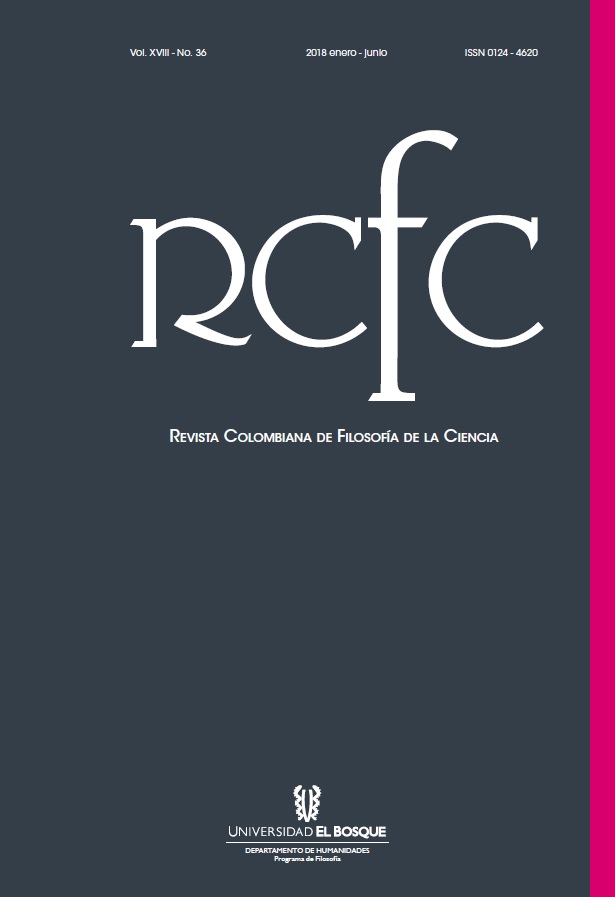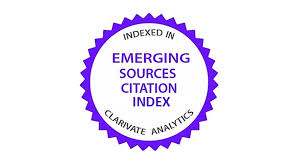Indispensability Argument And Inference To The Bestexplanation In Philosophy Of Mathematics
An Epistemic Approach
DOI:
https://doi.org/10.18270/rcfc.v18i36.2333Keywords:
Indispensability argument, inference to the best explanation, mathematical posits, physical posits, epistemic contribution, mathematical platonismAbstract
I elaborate and defendan epistemic reading of the indispensability argument, whichallows us to fully embrace the epistemic contribution of mathematics to the empirical success of science without holding that such contribution amounts to a reason for the reality of mathematical entities. I argue that the indispensability argument is not an instance of inference to the best explanation. After highlighting the distinction between physical and mathematical posits, I contend that even though inference to the best explanation may work in postulating unobservable physical posits, we lack reasons to believe that it performs the same role in view of mathematical posits
Downloads
References
Arabatzis, Theodore. Representing Electrons. A Biographical Approach to Theoretical Entities. Chicago: The University of Chicago Press, 2006.
Azzouni, Joddy. Deflating Existential Consequence. New York: Oxford University Press, 2004.
Baker, Alan. (2005) “Are There Genuine Mathematical Explanations of Physical Phenomena”, Mind, 114.454 (2005)): 223-238.
__________ “Mathematical Explanation in Science”, The British Journal for the Philosophy of Science, 60 (2009): 611-633.
Baker, Alan y Mark Colyvan. “Indexing and Mathematical Explanation”, Philosophia Mathematica, III.19 (2011): 323-334.
Balaguer, Mark. Platonism and Anti-Platonism in Mathematics. Oxford: Oxford University Press, 1998.
Bangu, Sorin. The Applicability of Mathematics in Science: Indispensability and Ontology. London: Palgrave Macmillan, 2012.
Bokulich, Peter y Alisa Bokulich. Scientific Structuralism. Dordrecht: Springer, 2012.
Bueno, Otávio. “Constructive Empiricism, Again”, en Bokulich, Peter y Alisa Bokulich (2011), 81-103.
Bueno, Otávio y Steven French. Applying Mathematics: Immersion, Inference, Interpretation. Oxford: Oxford University Press, 2018.
Clowe, Dove, M. Bradac, A. H. Gonzalez, M. Marketevich, S. W. Randall, and D. Zaritsky. “A Direct Empirical Proof of the Existence of Dark Matter”, The Astrophysical Journal, 648 (2006) L109-L113.
Colyvan, Mark. The Indispensability of Mathematics. Oxford: Oxford University Press, 2001.
__________ “Mathematics and Aesthetics Considerations in Science”, Mind, 111.441 (2002): 69-74.
__________ An Introduction to the Philosophy of Mathematics. Cambridge: Cambridge University Press, 2012.
Daly, Christopher and S. Langford. “Mathematical Explanation and Indispensability Arguments”, The Philosophical Quarterly, 59.237 (2009): 641-658.
Field, Hartry. Science without Numbers. A Defence of Nominalism. Princeton: Princeton University Press, 1980.
__________ Realism, Mathematics and Modality. New York: Basil Blackwell, 1989.
Freese, Katherine. “The Dark Side of the Universe”, Nuclear Instruments and Methods in Physics Research. A 559 (2006): 337-30.
Fricke, Martin. Essays in Honour of Bob Durrant. Dunedin, Otago University Philosophy Department, 1986.
Lange, Mark. An Introduction to the Philosophy of Physics: Locality, Fields, Energy, and Mass. New York: Blackwell, 2002.
__________ “What´s Wrong with Indispensability? (Or, the Case for Recreational Mathematics)”, Synthese, 131.3 (2002): 395-417.
__________ Mathematics and Reality. Oxford: Oxford University Press, 2010.
Maddy, Penelope. “Taking Naturalism Seriously”, in Prawitz, David, B. Skyrms and D. Westerstahl (1994), 383-407.
__________ “Naturalism and Ontology”, Philosophia Mathematica, 3.3 (1995): 248-270.
__________ Naturalism in Mathematics. Oxford: Oxford University Press, 1997.
Melia, Joseph. “Weaselling away the Indispensability Argument”, Mind, 109.435 (2000): 435-479.
Morrison, Margaret. Reconstructing Reality. Models, Mathematics, and Simulations. Oxford: Oxford University Press, 2015.
Musgrave, Alan. “Arithmetical Platonism: Is Wright Wrong or Must Field Yield?”,
en Fricke, Martin. (1986), 90-110.
Pincock, Christopher. Mathematics and Scientific Representation. Oxford: Oxford University Press, 2012.
Prawitz, David, B. Skyrms and D. Westerstahl. Logic, Methodology and Philosophy of Science IX. Netherlands: Elsevier, 1994.
Quine, Willard van O. “On What There Is”, The Review of Metaphysics, 2.5 (1948): 21-38.
__________ “Two Dogmas of Empiricism”, The Philosophical Review, 60.1 (1951): 20-43.
__________ Quintessence. Basic Readings from the Philosophy of W. V. Quine, Roger F. Gibson, Jr. editor. Cambridge, Mass.: Harvard University Press, 2004.
Resnik, Michael. Mathematics as a Science of Patterns. Oxford: Clarendon Press, 1997.
Saatsi, Juha. “The Enhanced Indispensability Argument: Representational versus Explanatory Role of Mathematics in Science”. British Journal for the Philosophy of Science, 62 (2011): 143-154.
Sober, Elliot. “Mathematics and Indispensability”, The Philosophical Review, 102.1 (1993): 35-57.
Downloads
Published
How to Cite
Issue
Section
License
Copyright (c) 2018 Editorial El Bosque

This work is licensed under a Creative Commons Attribution-NonCommercial-NoDerivatives 4.0 International License.

| Article metrics | |
|---|---|
| Abstract views | |
| Galley vies | |
| PDF Views | |
| HTML views | |
| Other views | |











